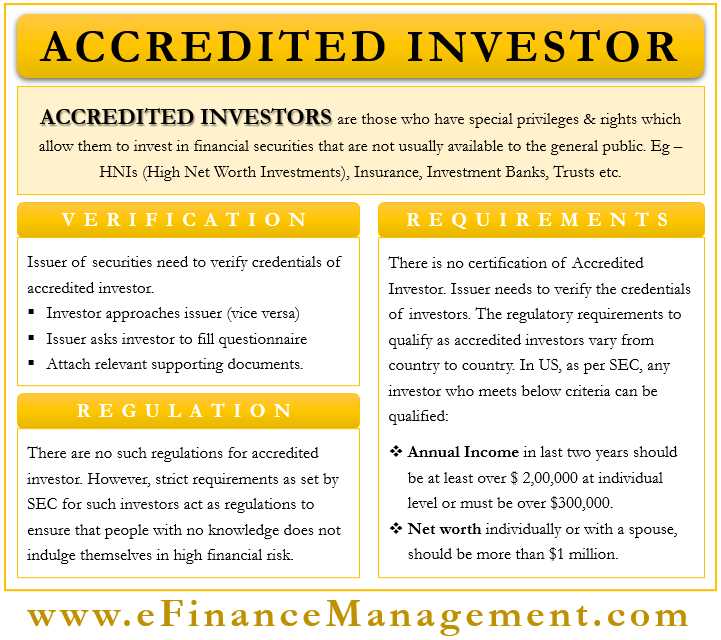Non-Accredited Investor: What is it and How Does it Differ from an Accredited Investor?

A non-accredited investor refers to an individual or entity that does not meet the requirements set by the Securities and Exchange Commission (SEC) to be considered an accredited investor. The SEC has established these requirements to protect non-accredited investors from potentially risky investments and to ensure that only those with sufficient financial knowledge and resources can participate in certain investment opportunities.
So, what exactly distinguishes a non-accredited investor from an accredited investor? The main difference lies in their financial status and level of investment sophistication. An accredited investor is typically someone with a high net worth, a certain level of income, or extensive investment experience, while a non-accredited investor does not meet these criteria.
However, it is important to note that being a non-accredited investor does not mean that one cannot invest at all. There are still plenty of investment options available to non-accredited investors, such as publicly-traded stocks, bonds, mutual funds, and real estate investment trusts (REITs). These investments are regulated and offer a level of transparency and protection for all investors, regardless of their accreditation status.

Emily Bibb simplifies finance through bestselling books and articles, bridging complex concepts for everyday understanding. Engaging audiences via social media, she shares insights for financial success. Active in seminars and philanthropy, Bibb aims to create a more financially informed society, driven by her passion for empowering others.
